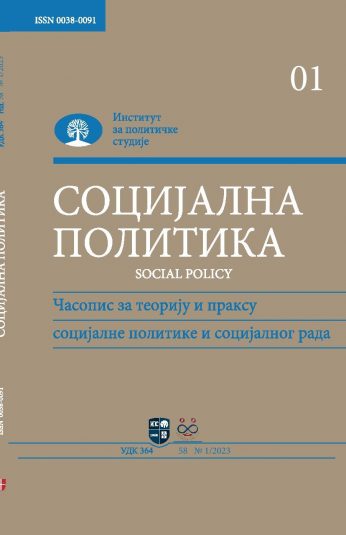ESPECIALLY VULNERABLE POPULATION GROUPS FACING DISCRIMINATION, INJUSTICE AND INEQUALITY
THE IMPORTANCE OF LIVING ROOM SERVICES IN THE FUNCTIONING OF CHILDREN WITH AUTISMAL SPECTRUM DISORDERS COVERED BY INCLUSIVE EDUCATION
Abstract
Autism spectrum disorder is a neurodevelopmental disorder that occurs at an early age and lasts a lifetime. From the etiological and phenomenological point of view, children with autism represent a complex grouping in the population of persons with developmental disabilities. In addition to the education provided to children with autism spectrum disorders within the educational process, the social protection system has recognized the day care service as a service that adequately affects all aspects of the development of a child with disabilities. The aim of this paper is to examine the functioning of children with autism spectrum disorder, who are currently in inclusive education in relation to children who have completed the educational process, by surveying professionals who are in direct work with them. 54 professionals were surveyed with 17 questions that were organized in three parts of the user’s functioning during the use of the day care service: user satisfaction during the use of the service, mastery of basic life skills and mastery of social skills. children who, in parallel with their education, use the day care service in relation to children who exercise the right to this service only after completing their education. The results also indicate that children who use the day care service at the same time with inclusive education show a higher degree of necessary support, ie less need for support. Based on the results of this research, it can be concluded that exercising the right to a day care service while a child with autism is studying has a positive effect on their quality of life.
References

